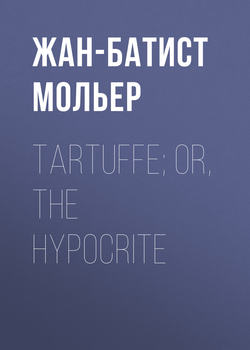Читать книгу Tartuffe; Or, The Hypocrite - Жан-Батист Мольер, Жан-Батист Поклен Мольер, Мольер (Жан-Батист Поклен) - Страница 4
ACT II
ОглавлениеSCENE I
ORGON, MARIANE
ORGON
Now, Mariane.
MARIANE
Yes, father?
ORGON
Come; I'll tell you
A secret.
MARIANE
Yes … What are you looking for?
ORGON (looking into a small closet-room)
To see there's no one there to spy upon us;
That little closet's mighty fit to hide in.
There! We're all right now. Mariane, in you
I've always found a daughter dutiful
And gentle. So I've always love you dearly.
MARIANE
I'm grateful for your fatherly affection.
ORGON
Well spoken, daughter. Now, prove you deserve it
By doing as I wish in all respects.
MARIANE
To do so is the height of my ambition.
ORGON
Excellent well. What say you of – Tartuffe?
MARIANE
Who? I?
ORGON
Yes, you. Look to it how you answer.
MARIANE
Why! I'll say of him – anything you please.
SCENE II
ORGON, MARIANE, DORINE (coming in quietly and standing behind
Orgon, so that he does not see her)
ORGON
Well spoken. A good girl. Say then, my daughter,
That all his person shines with noble merit,
That he has won your heart, and you would like
To have him, by my choice, become your husband.
Eh?
MARIANE
Eh?
ORGON
What say you?
MARIANE
Please, what did you say?
ORGON
What?
MARIANE
Surely I mistook you, sir?
ORGON
How now?
MARIANE
Who is it, father, you would have me say
Has won my heart, and I would like to have
Become my husband, by your choice?
ORGON
Tartuffe.
MARIANE
But, father, I protest it isn't true!
Why should you make me tell this dreadful lie?
ORGON
Because I mean to have it be the truth.
Let this suffice for you: I've settled it.
MARIANE
What, father, you would … ?
ORGON
Yes, child, I'm resolved
To graft Tartuffe into my family.
So he must be your husband. That I've settled.
And since your duty ..
(Seeing Dorine)
What are you doing there?
Your curiosity is keen, my girl,
To make you come eavesdropping on us so.
DORINE
Upon my word, I don't know how the rumour
Got started – if 'twas guess-work or mere chance
But I had heard already of this match,
And treated it as utter stuff and nonsense.
ORGON
What! Is the thing incredible?
DORINE
So much so
I don't believe it even from yourself, sir.
ORGON
I know a way to make you credit it.
DORINE
No, no, you're telling us a fairly tale!
ORGON
I'm telling you just what will happen shortly.
DORINE
Stuff!
ORGON
Daughter, what I say is in good earnest.
DORINE
There, there, don't take your father seriously;
He's fooling.
ORGON
But I tell you …
DORINE
No. No use.
They won't believe you.
ORGON
If I let my anger …
DORINE
Well, then, we do believe you; and the worse
For you it is. What! Can a grown-up man
With that expanse of beard across his face
Be mad enough to want …?
ORGON
You hark me:
You've taken on yourself here in this house
A sort of free familiarity
That I don't like, I tell you frankly, girl.
DORINE
There, there, let's not get angry, sir, I beg you.
But are you making game of everybody?
Your daughter's not cut out for bigot's meat;
And he has more important things to think of.
Besides, what can you gain by such a match?
How can a man of wealth, like you, go choose
A wretched vagabond for son-in-law?
ORGON
You hold your tongue. And know, the less he has,
The better cause have we to honour him.
His poverty is honest poverty;
It should exalt him more than worldly grandeur,
For he has let himself be robbed of all,
Through careless disregard of temporal things
And fixed attachment to the things eternal.
My help may set him on his feet again,
Win back his property – a fair estate
He has at home, so I'm informed – and prove him
For what he is, a true-born gentleman.
DORINE
Yes, so he says himself. Such vanity
But ill accords with pious living, sir.
The man who cares for holiness alone
Should not so loudly boast his name and birth;
The humble ways of genuine devoutness
Brook not so much display of earthly pride.
Why should he be so vain? … But I offend you:
Let's leave his rank, then, – take the man himself:
